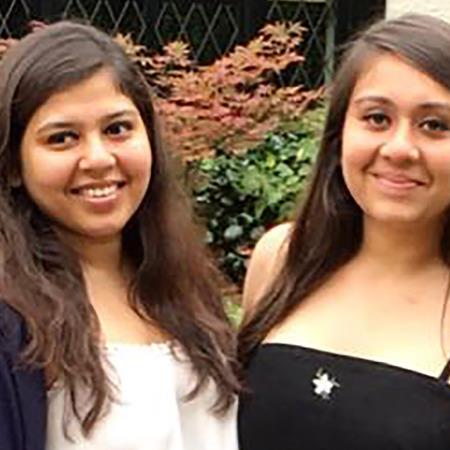Partywear crafted out of natural fibres
Headquartered in Kolkata, India, sustainable clothing brand Ora was founded last year by Kishina Daruka and Mishika Daruka. In an interview with Fibre2Fashion, the founders discuss about the inspiration behind launching of the brand and how they are trying to incorporate sustainability in their fashion products.
When was the brand launched in India?
Our first collection drop happened in October 2020.
What was the inspiration that led to the formation/founding of the brand?
While working for big names in the industry, we noticed huge amounts of waste with respect to fabrics, trims and detailing. In turn this made us realise the amount of wastage we create in our everyday lives. The effect of fast fashion was staring at me right in the face. At Ora we make maximum usage of our garments, before we repurpose it.
Where is the company headquartered at?
We are headquartered at Kolkata, West Bengal.
Which are the categories the brand is into?
We are into womenswear.
Who are your target audience?
Youth, working professionals and anyone who is beginning to understand the follies of fast fashion.
What is the price point for your clothes?
Our price points start at Rs 2500.
What is your retail and web presence like?
We are looking to start stocking with a few conscious retailers. We would be going online with Amazon and launch our own website soon.
What is the USP of your products?
We use natural fibre fabrics along with handloom fabrics, only use herbal or azo free dyes. Our clothes are comfortable loungewear as well partywear.
Which are the major markets?
India and targeting Australia.
Which other product categories do you plan to move into future?
Menswear and kidswear.
What has been your growth story in the last three years (excluding 2020)?
We launched the label in August 2020.
What has been the impact of Covid in terms of sales, staff cutdown, rentals etc?
We had reduced sales, our craftsmen and artisans were travel affected. We didn’t cut down on our staff.11
If you are looking for vendors, what are the top 3 qualities are you looking at beyond the givens of quality, lead time, compliances etc?
We would be looking at conscious vendors.
How does your supply chain network work? What regions of the world is part of your supply chain?
Our fabrics are sourced from weavers and other manufacturing units from across the country, but most of our fabrics are sourced from Uttarakhand, Ahmedabad, Mumbai and West Bengal.
How is the supply chain expected to change with increasing digitisation, AI, VR etc? And how is this going to impact the business of sourcing?
With increasing digitisation, our supply chain has mostly remained unaffected as we have built a strong working relationship with our vendors. Our fabrics are first sampled before a bulk order is placed. After thorough physical checks by our founder, we purchase our fabrics.
Where are your manufacturing facilities based at?
Kolkata, West Bengal.
What is the annual production capacity?
Our clothes are made to order. We are just starting out and hoping to promote sustainability.
What kind of machinery does your manufacturing facility boast of?
We use lock stitch machine, interlock machine, embroidery machine as well as hand embroidery equipment (adda) ironing table, pattern making table.
Sustainability and circularity are the buzz words today. How do you incorporate them into your product lines?
Our brand’s ethos is driven by sustainability. We are working on a circular business model where in not a scrap of our fabric will be discarded. We will either upcycle or send it for recycling.
All our products are made using natural fibres which are either herbal dyed or azo free dyed. We collect all our scarp material and are currently working on a collection model which will be fully upcycled, there by taking steps towards zero waste. Our craftsmen created value that gives value to our clients and we hope they use it sustainably.
What are your long-term sustainability goals?
Our long term sustainability goals are to empower our weaver community, the women who work for us and make ourselves carbon negative along with making beautiful garments for everyone which are naturally decomposable.

